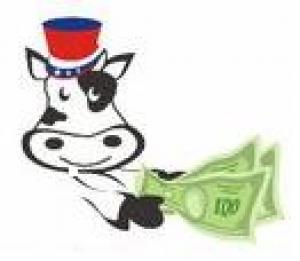- Accrued Interest - Interest earned on a security that has not yet been paid to the investor.
- Annual Percentage Yield (APY) - The percentage required to be disclosed in Truth in Savings regulations on interest-bearing deposit accounts (savings accounts and CDs). This number reflects the total interest to be received over a 365-day year according to the bank's own method of compounding. Therefore, the use of APY creates a level playing field through which to compare returns from bank accounts and CDs that may use differing compounding methodology. Ordinarily, cash equivalents other than those offered by banks and FCUs do not use APY methods of compounding. To compare a non-bank or FCU-issued products with the APY of a product issued by one of these institutions, it is ordinarily necessary to adjust upward the non-APY rate by between 6 and 10 basis points (.06% to .10%), depending on the frequency of interest payments or accrual of that product.
- Ask Price - The price being sought for the security by the seller.
- Ask Yield - The return that an investor would receive on a fixed income security were they to purchase it at the ask price.
- Basis point - One percentage point of one percent. The difference between 2.00% and 2.01% is one basis point. The difference between 2.00% and 2.02% is two basis points. The difference between 2.00% and 2.50% is fifty basis points.
- Bid Price - The amount at which a buyer would purchase a security.
- Call Option - A right to purchase a security at a certain price at a specified time, usually given for a payment of some sort.
- Callable Bonds - Bonds that the issuer may redeem at specified dates and prices. Municipal bonds and agency bonds are often callable. The Treasury has not issued callable bonds since 1985.
- Coupon - The part of a bond certificate that denotes the amount of interest due, and on what date and where payment will be made. In the past, bondholders presented actual coupons to receive the interest due. Book-entry systems have made coupons obsolete, but “coupon” has become a common expression for interest rate.
- Current Yield - The percentage return on a bond based on its current market price and its original interest rate. A bond or CD for which you paid $1,000 and that pays you $60 annually would have a current yield of 6%.
- Discount - The amount under face value paid for a security. A security trading at 99% of face value is said to be trading at a 1% discount under par. A security trading exactly at 100% of face value is trading at par value. The opposite of premium.
- Face amount - Par value (principal or maturity value) of a security.
- Hedge - An investment made to minimize the impact of adverse movements in interest rates or securities prices.
- Issuer - The entity that issues a debt security and is obligated to pay interest and principal.
- Laddering - A technique for reducing the impact of interest-rate risk by structuring a portfolio with different instruments that mature at different dates.
- LIBOR - LIBOR stands for London Interbank Offered Rate and is a standard financial index used in U.S. capital markets. The official rate, listed daily in the Wall Street Journal, Bloomberg and on Reuters is the rate of interest at which banks offer to lend money to one another in the wholesale money markets in London. Although it has been traditionally a reference figure for corporate financial transactions, it has been increasingly used for consumer loans in recent years and its changes have been smaller than changes in the prime rate.
- Liquidity - The ability to quickly convert an investment into cash. A bank account that you can withdraw money from at any given moment without a penalty offers the best liquidity. Other investments that allow quick conversion to cash (or that mature quickly after purchase) are said to also be liquid. Long-term bonds are generally considered less liquid. Real estate investments are perhaps the least liquid investment class.
- Maturity - The date on which the issuer of a security is obligated to redeem the security (exchange the security for cash in the amount of face value plus accrued interest).
- Premium - The amount over face value paid for a security. If a security is selling for 101% of face value, it is said to be trading at a 1% premium over par. A security trading exactly at 100% of face value is trading at par value. The opposite of discount.
- Put - A right to sell a security at a certain price at a specified time, usually given for a payment of some sort.
- Secondary market - Market for issues previously offered or sold.
- Yield - The annual rate of return earned on a security. This is an expression of the relationship between the cost of the security, the interest received and the profit or loss, if any, from its sale.
- Yield to maturity - A yield based on the assumption that the security remains outstanding to maturity. It represents the total of coupon payments until maturity, plus interest on interest, and whatever gain or loss is realized from the security at maturity.
- Zero coupon bond - A bond on which no periodic interest payments are made. The investor receives one payment at maturity that includes principal and interest.






Add your Comment
or use your BestCashCow account